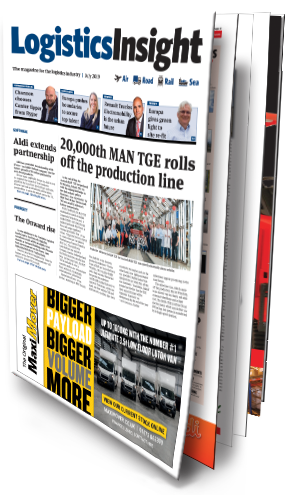Sustainability in the logistics industry is a hot topic, so it is gratifying to see many distribution companies aiming to cut down on CO2 emissions and waste by investing in ‘green’ energy and electrifications of logistics fleets and facilities. No single example is more impressive from a big corporation’s view, perhaps, than the auto maker Renault’s announcement to invest in an ambitious plan to construct two wind-powered Ro-Ro vessels next year.

CLICK HERE TO LAUNCH THE JULY DIGITAL EDITION OF LOGISTICS NEWS MAGAZINE
Renault has partnered with the French start-up, Neoline, founded in 2015 with a goal of becoming the first ship owner specialising in sailing cargo ships, and they will first develop a 136-mt long ship with 4,200 mt2 of sail area to serve as a model. After that it will construct two sail-powered ships by 2020-21 to serve as a pilot route to join Sainte Lazaire to the US seaboard and Newfoundland.
Renault says it is part of its environmental strategy aimed at reducing its carbon footprint by 25% between 2010 and 2022, with a 6% reduction target for its supply chain compared with its 2016 levels. The objective is to reduce the environmental impact of each vehicle throughout its entire life cycle, a commendable and impressive feat given the company’s sales of 3.76 million vehicles in 2017 and a presence in 134 countries. Nearly 60% of the group’s parts and vehicles are transported by sea.
Renault’s and Neoline’s laudable aim, however, is not just about the environment. The ships will operate within an industrial, competitive framework with the support of its partners. Dubious, you may think, as you muse over the problems of sail-powered cargo ships? B9 Shipping, an organization leading the charge on this back-to-the-past concept, would strongly disagree. Its team is working in collaboration with top organizations to make the concept a reality within the commercial shipping industry. The technology behind B9 ships, coupled with weather-optimized shipping routes, will deliver competitive freight rates and equal performance against schedules of oil-based ships. The state-of-theart sail propulsion system maximises performance, dramatically improves reliability, has minimal impact on normal cargo operations and ensures optimal health and safety compliance.
Unlike commercial sailing vessels in the past, operations are entirely controlled from the bridge and crew numbers would be the same as those on board a conventional powered ship. Predictability on long-term freight costs add a significant advantage to those planning future logistics. Since 60% of the energy used to move B9 ships will come from the wind, and Rolls Royce ancillary engines are powered by wastederived bio-gas, B9 Shipping can offer unparalleled, long-term solutions in the new era of energy cost stability.
The UK shipping Minister, Sir Mike Penning, remarked: “The innovative technologies being developed by B9 Shipping are very welcome in demonstrating to the shipping industry and the world beyond that efficient and affordable low carbon shipping is possible.”
JAMES SURRIDGE
Publishing Editor
james@warehousenews.co.uk





Comments are closed.